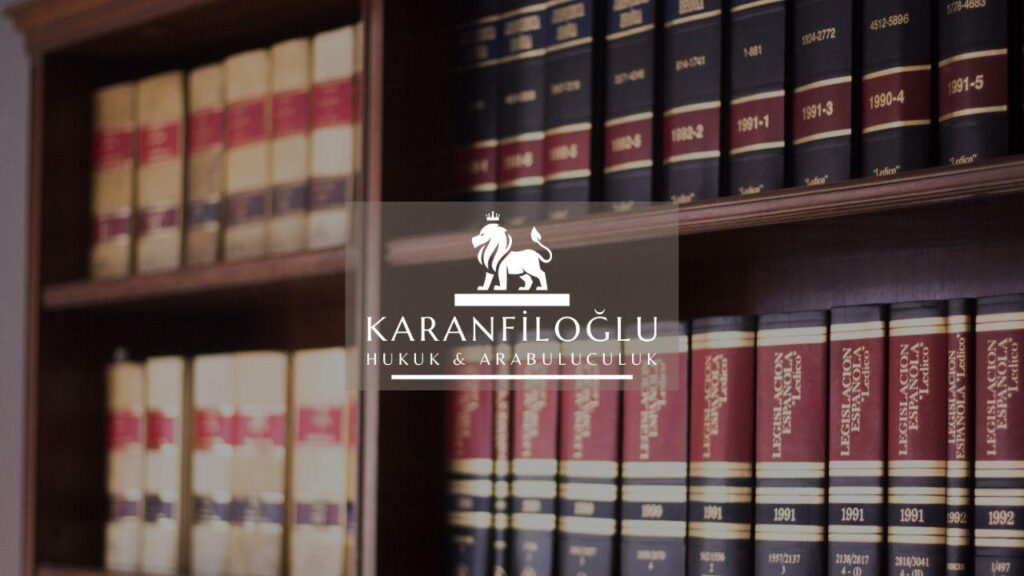Navigating Turkish leasing laws requires a nuanced understanding of the pertinent provisions and regulations that govern rental agreements. At the Karanfiloglu Law Office, we provide comprehensive legal guidance tailored to meet your leasing needs in Turkey. Key legislative frameworks such as the Turkish Code of Obligations (No. 6098) and the Turkish Commercial Code (No. 6102) establish the foundation for leasing agreements, encompassing both residential and commercial properties. Articles 299-378 of the Turkish Code of Obligations detail the mutual rights and obligations of lessors and lessees, including terms on rent, lease durations, and termination procedures. Additionally, recent amendments and supplementary legislation impact rental control measures and dispute resolution mechanisms. By leveraging our expertise, Karanfiloglu Law Office ensures that our clients are well-informed and compliant with these intricate legal standards, providing them with clarity and peace of mind in their leasing transactions.
Understanding Key Provisions and Tenant Rights
In Turkey, tenant rights are robustly protected under the Turkish Code of Obligations (No. 6098), specifically designed to balance the interests of both lessors and lessees. Articles 299-348 outline essential tenant rights, such as the right to a habitable property, the right to privacy, and protections against unjust eviction. For instance, Article 316 mandates that the lessor must maintain the rented property in a suitable condition throughout the lease period, ensuring it remains fit for its intended use. Additionally, Article 340 emphasizes that any agreement or clause waiving the lessee’s rights granted by these provisions is considered void. Furthermore, recent legislative reforms have introduced increased measures for rental control, aiming to prevent exorbitant rent hikes and provide tenants with greater stability. At Karanfiloglu Law Office, we guide tenants through these intricate legal protections, ensuring their rights are upheld at every stage of the leasing process.
In addition to the fundamental tenant rights, Turkish law also delineates specific procedures for lease termination and renewal to safeguard both parties’ interests. Articles 347 and 348 of the Turkish Code of Obligations address the conditions under which a lease can be terminated or extended. For residential leases, the tenant has the right to terminate the lease by giving notice three months prior to the end of the lease period, as stipulated in Article 347. Conversely, lessors are generally restricted from refusing lease renewal unless they have legitimate grounds, such as personal use or major renovations, as outlined in Article 350. The law also provides mechanisms for resolving disputes arising from lease termination or renewal through mediation and, if necessary, judicial proceedings. At Karanfiloglu Law Office, we offer expert legal assistance to help clients navigate these procedures effectively, ensuring compliance with all relevant legal requirements and protecting their interests throughout the leasing process.
A significant aspect of tenant rights in Turkey involves the regulations on rental increases and deposit management. Under Article 344 of the Turkish Code of Obligations, rental increases are subject to stringent rules; any rent increase during the lease term must not exceed the rate of change in the Consumer Price Index (CPI) over the previous contract year, unless a lower rate was agreed upon initially. Additionally, deposits are safeguarded under Article 342, which requires that any security deposit be held in a bank account where both the lessor and lessee have rights, ensuring its return at the end of the lease term, barring any legitimate deductions. The lessee must be aware that any clause demanding an excessive or unregulated increase in rent or misuse of deposits can be contested legally. Karanfiloglu Law Office is dedicated to providing thorough legal advice on these matters, ensuring that tenants and lessors alike engage in fair and legally compliant leasing agreements.
Navigating Dispute Resolution and Court Procedures
Navigating dispute resolution and court procedures in Turkish leasing laws requires a keen insight into the legislative frameworks that govern these processes. Disputes arising from lease agreements are primarily adjudicated under the Turkish Code of Obligations (No. 6098), specifically Articles 299-378, which outline the rights and obligations of both lessors and lessees. When a dispute cannot be amicably resolved, the parties may seek recourse through the Turkish judicial system, often beginning with mediation as mandated by the Turkish Mediation in Civil Disputes Law (No. 6325). If mediation fails, the case may proceed to court, where the expertise of seasoned legal professionals becomes indispensable. At Karanfiloglu Law Office, our experienced attorneys are adept at navigating these complex procedures, ensuring our clients are thoroughly represented and their interests are safeguarded throughout the litigation process.
A significant aspect of resolving lease disputes involves understanding the jurisdiction and venue rules established by Turkish Civil Procedure Law (No. 6100). Typically, cases concerning lease agreements should be filed in the courts located where the leased property is situated, according to Article 12 of Law No. 6100. Moreover, it’s imperative to recognize the evidentiary requirements and deadlines stipulated in the Code of Civil Procedure to avoid any adverse procedural consequences. This includes presenting all relevant documents, such as the lease contract, payment records, and any communications between the lessor and the lessee that pertain to the dispute. At Karanfiloglu Law Office, our meticulous approach ensures that all necessary documentation is precisely managed and presented, maximizing the chances of a favorable outcome for our clients.
Beyond understanding the formal procedures, our team at Karanfiloglu Law Office also emphasizes the importance of post-litigation enforcement. According to the Turkish Execution and Bankruptcy Law (No. 2004), specifically Articles 26-33, the successful enforcement of a court’s judgment is a crucial step in guaranteeing that the victorious party’s rights are fully realized. This involves initiating enforcement proceedings to ensure compliance with the court’s decision, whether it pertains to the eviction of a tenant, the collection of overdue rent, or the fulfillment of other lease-related obligations. Our firm’s expertise in enforcement procedures ensures that our clients face minimal obstacles during this final stage, thereby securing their legal and financial interests. By comprehensively handling both pre-litigation and post-judgment phases, Karanfiloglu Law Office stands as a steadfast ally in navigating the complexities of Turkish leasing law.
Practical Tips for Drafting Lease Agreements in Turkey
When drafting a lease agreement in Turkey, it is crucial to ensure that all terms are explicitly outlined to prevent any potential disputes. Firstly, clearly state the duration of the lease and the conditions for renewal or termination, as mandated by Article 328 of the Turkish Code of Obligations (No. 6098). Additionally, specify the amount of rent, the payment schedule, and any allowable increases in accordance with Article 344, which caps rent increases based on the consumer price index. It’s also important to include clauses detailing the responsibility for property maintenance and the conditions under which the lease can be terminated by either party. By meticulously outlining these aspects, you ensure that the lease agreement is not only comprehensive but also compliant with the prevailing legal standards, thereby safeguarding the interests of both the lessor and the lessee.
Another pivotal aspect to consider in drafting a lease agreement is the security deposit, which is governed by Article 342 of the Turkish Code of Obligations. The deposit amount should be explicitly mentioned in the agreement and is generally capped at three months’ rent. This deposit acts as a safeguard for the lessor in case of any damages or unpaid rent. The agreement should also state the conditions under which the deposit will be returned at the end of the lease term, ensuring transparency and fairness. Additionally, if the property is furnished, a detailed inventory list of the provided items should be included as an annex to the contract. This list, signed by both parties, helps avoid any disputes regarding the condition of the furnishings when the lease ends. By addressing these elements thoroughly, you minimize potential conflicts and foster a clear understanding between the lessor and the lessee.
Finally, it’s imperative to address any specific conditions or unique requirements related to the leased property, such as usage restrictions and permissible alterations. In accordance with Article 316 of the Turkish Code of Obligations (No. 6098), the agreement should outline the permitted use of the property to avoid any unauthorized activities. This clause is particularly relevant for commercial leases, where the type of business operations conducted can have a significant impact on both the property and neighboring businesses. Furthermore, any modifications or improvements to the property should be clearly regulated, specifying who bears the cost and how these changes will be handled at the end of the lease term. Including these provisions ensures that both parties have a mutual understanding of their rights and obligations, helping to maintain a harmonious landlord-tenant relationship throughout the duration of the lease.
Disclaimer: This article is for general informational purposes only and you are strongly advised to consult a legal professional to evaluate your personal situation. No liability is accepted that may arise from the use of the information in this article.







